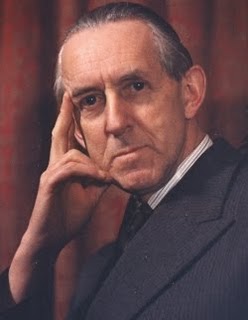A Quote by William Styron
I try to get a feeling of what's going on in the story before I put it down on paper, but actually most of this breaking-in period is one long, fantastic daydream, in which I think about anything but the work at hand. I can't turn out slews of stuff each day. I wish I could. I seem to have some neurotic need to perfect each paragraph?each sentence, even?as I go along.
Related Quotes
Lester del Rey told me repeatedly that the first and most important part of writing fiction is just to think about the story. Don't write anything down. Don't try to pull anything together right away. Just dream for a while and see what happens. There isn't any timetable involved, no measuring stick for how long it ought to take. For each book, it is different. But that period of thinking, of reflection, is crucial to how successful your story will turn out to be.
The commas are the most useful and usable of all the stops. It is highly important to put them in place as you go along. If you try to come back after doing a paragraph and stick them in the various spots that tempt you you will discover that they tend to swarm like minnows into sorts of crevices whose existence you hadn't realized and before you know it the whole long sentence becomes immobilized and lashed up squirming in commas. Better to use them sparingly, and with affection, precisely when the need for each one arises, nicely, by itself.
Do each day all that can be done that day. You don't need to overwork or to rush blindly into your work trying to do the greatest possible number of things in the shortest possible time. Don't try to do tomorrow's or next week's work today. It's not the number of things you do, but the quality, the efficiency of each separate action that count. To achieve this "habit of success," you need only to focus on the most important tasks and succeed in each small task of each day.
Last night I thought about all the kerosene I've used in the past ten years. And I thought about books. And for the first time I realized that a man was behind each one of the books. A man had to think them up. A man had to take a long time to put them down on paper. And I'd never even thought that thought before...It took some man a lifetime maybe to put some of his thoughts down, looking around at the world and life, and then I come along in two minutes and boom! it's all over.
He and his wife loved each other and brought each other daily pain. Everything else he was doing in his life, even his longing for Lalitha, amounted to little more than flight from circumstance. He and Patty couldn't live together and couldn't imagine living apart. Each time he thought they'd reached the unbearable breaking point, it turned out that there was still further they could go without breaking.
I'm one of the narrative-push people. I don't outline, I don't plan ahead. So I'm my first reader, telling myself the story as I'm going along. Since I haven't designed it ahead of time, each day I have to be sure that the footing is solid before I make the next step. I think you could be more intricate if you work it out ahead of time.
We see them [animals] as the Ice Age is ending and we know that actually in the long run, they're not going to make it. And there's something beautiful about that, beautifully sad. The way the characters are woven together in the film adds to the emotion because they need each other. The message is that it doesn't matter what species you are, you can still love each other and that is a fantastic message.
The best way is to read it all every day from the start, correcting as you go along, then go on from where you stopped the day before. When it gets so long that you can't do this every day read back two or three chapters each day; then each week read it all from the start. That's how you make it all of one piece.
Hell, I'd even failed with women. Three wives. Nothing really wrong each time. It all got destroyed by petty bickering. Railing about nothing. Getting pissed-off over anything and everything. Day by day, year by year, grinding. Instead of helping each other you just sliced away, picked at this or that. Goading. Endless goading. It became a cheap contest. And once you got into it, it became habitual. You couldn't seem to get out. You almost didn't want to get out. And then you did get out. All the way.





































